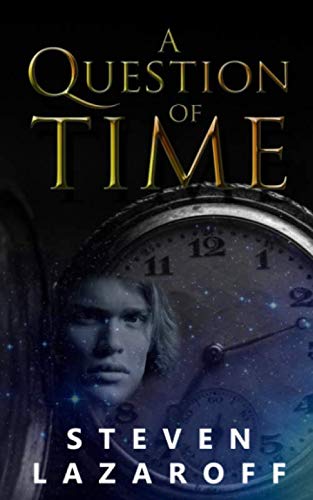A Question of Time
In Lazaroff’s fast-paced time travel novel, historian Jonathan Lambert disappears from a train to Paris and finds himself transported to 1774, during the reign of Louis XVI. Lambert’s adjustment to life in 18th-century France, without modern hygiene and conveniences, is among the most entertaining parts in the novel. With the help of historical characters such as the watchmaker Breguet and the chemist Lavoisier, Lambert undertakes a series of inventions which, he hopes, will improve the lives of the poor while preventing the violence and bloodshed of the French Revolution, which he knows is coming. He introduces agricultural equipment, kerosene lamps, the railroad, and the automobile, but these inventions get him into trouble with the guilds, who want him arrested. Then Lambert falls in love, and he wonders if he even wants to go back to his own time.
Meanwhile, in the present day, police inspector Nadeau searches for the missing Jonathan Lambert, but how can Nadeau find a man who never existed? His passport and credit cards are invalid, and his students do not remember him. Lambert’s actions in the past are changing the present-day world without Nadeau, or anyone, being aware of the changes. In this alternate modern world, there is still a king in France, and society is stratified into the three Estates of pre-revolutionary France.
A Question of Time is a delight to read, and Lazaroff keeps the suspense high about whether Lambert’s inventions will be successful and whether he will decide to stay in the 18th century. The present-day sections present a fascinating theory about time travel: that it is possible to change the past without people knowing that anything has changed. In his author’s note, Lazaroff mentions the possibility of a sequel, and I hope he decides to write one.










